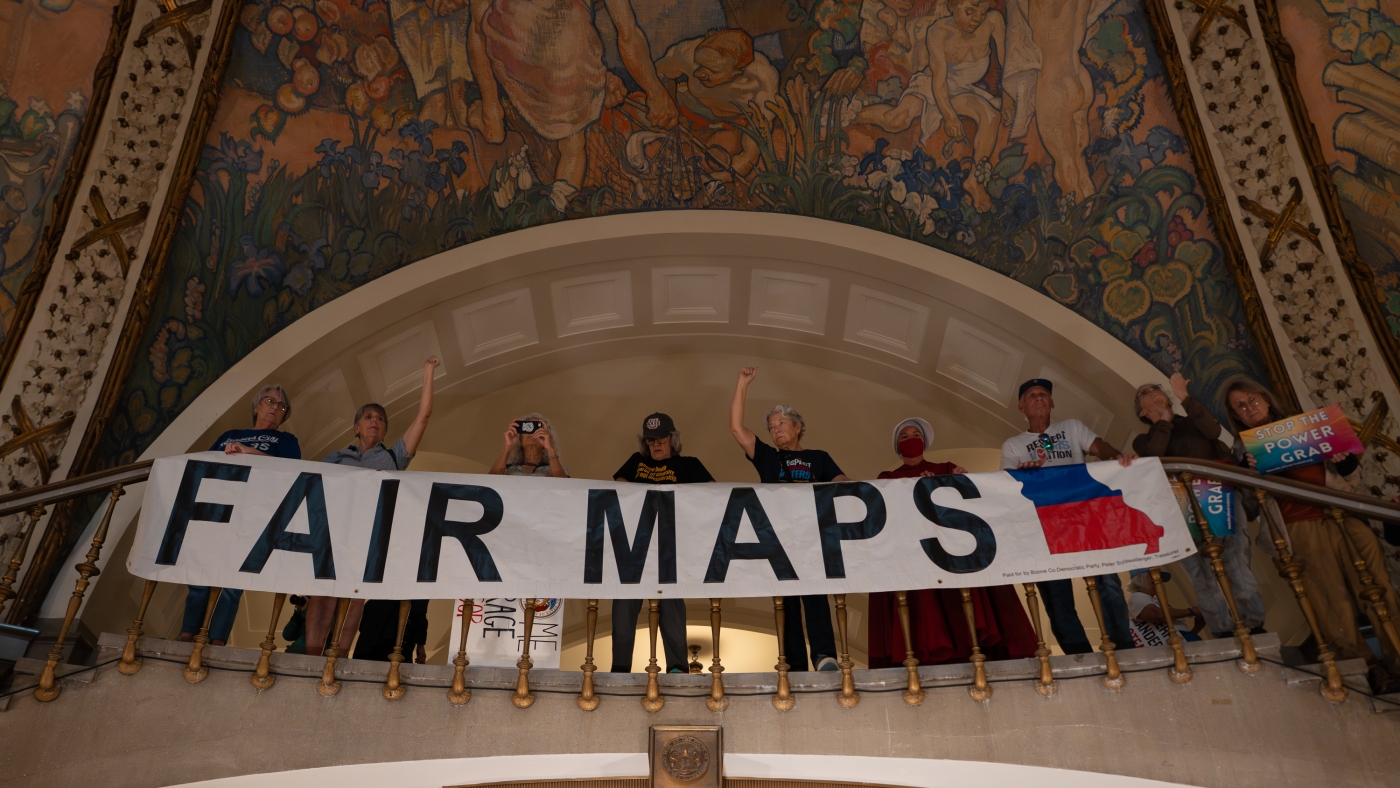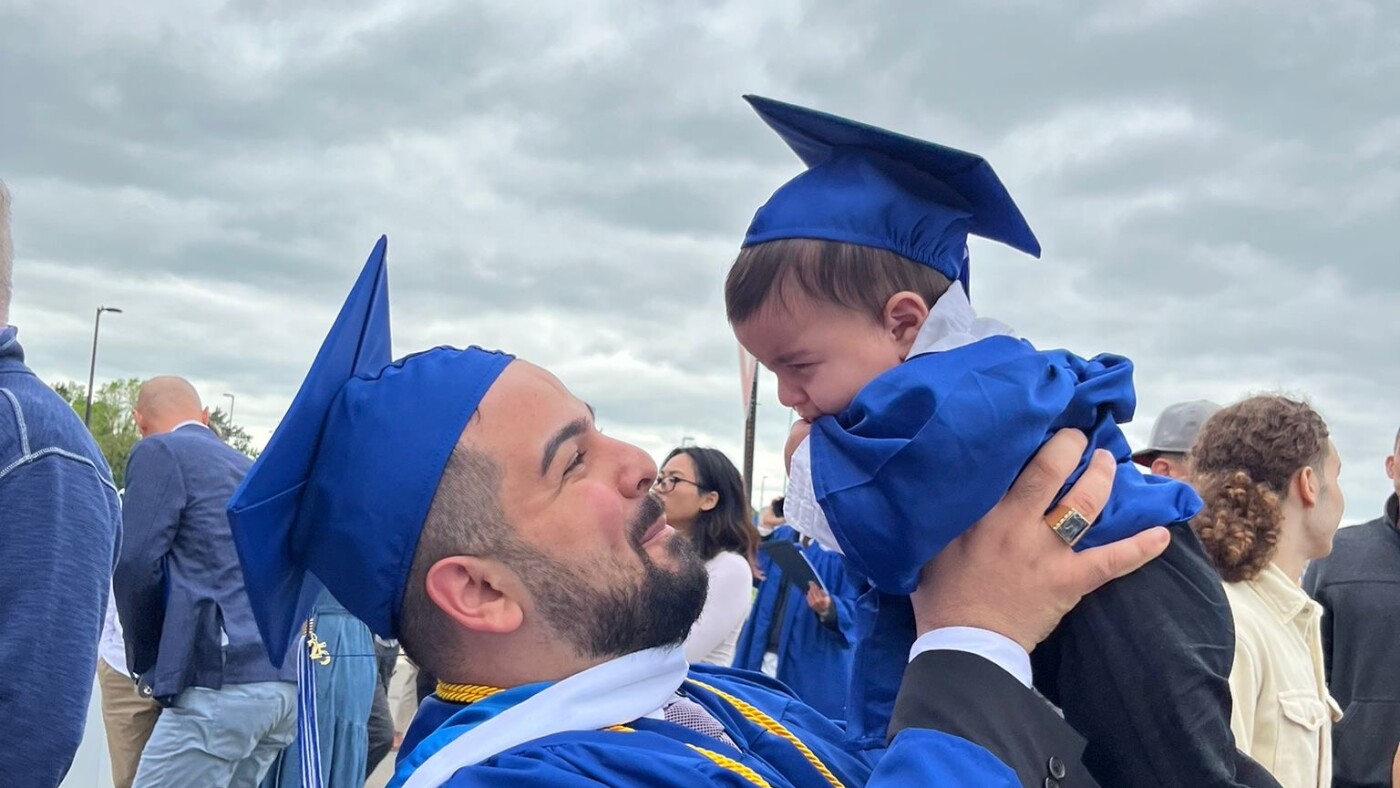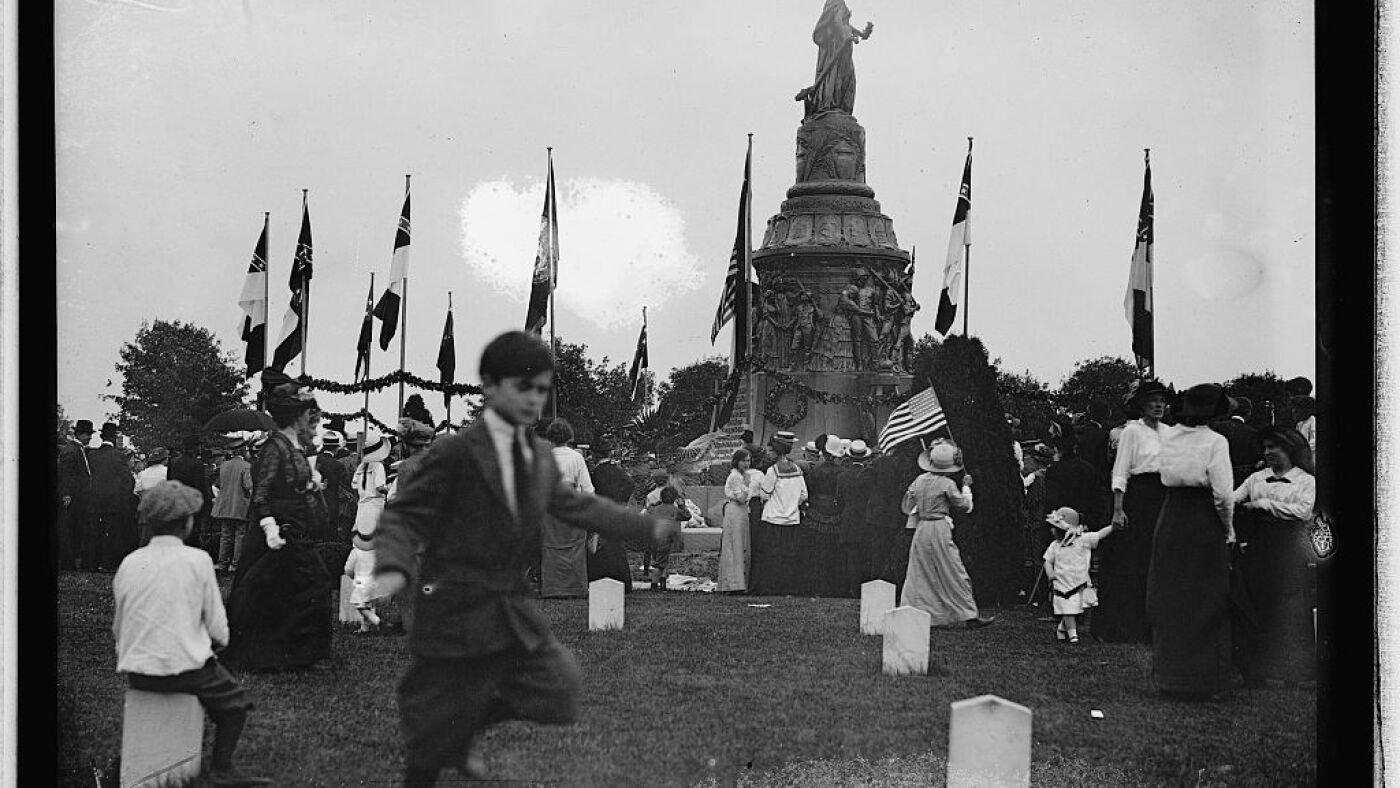
A United States Air Force Boeing C-17 used for deportation flights is pictured at Biggs Army Airfield in Fort Bliss, El Paso, Texas in February 2025. Justin Hamel/AFP via Getty Images hide caption
toggle caption
Justin Hamel/AFP via Getty Images
The Supreme Court on Monday stayed a lower court order that required people set to be deported to countries other than their own to be allowed challenge their deportation orders.
The order focused on a flight of eight men from various countries — including Myanmar, Laos, Vietnam, Cuba and Mexico — which was initially headed to South Sudan but ended up in the East African country of Djibouti in order to give the people time to dispute their final destination. The U.S. government says the men are violent criminals, convicted of crimes including murder, sexual assault, kidnapping and robbery, and they don't deserve to stay in the U.S.
But Judge Brian Murphy of the U.S. District Court for the District of Massachusetts last month said people must still get a so-called "credible fear" interview in their native language to be able to dispute being sent to a country they're not originally from. He said people must get at least 15 days to challenge their deportations.
Monday's unsigned order puts that decision on hold while the legal process continues in the lower courts. The court's three liberals — Justices Sonia Sotomayor, Elena Kagan and Ketanji Brown Jackson — dissented.
"In matters of life and death, it is best to proceed with caution," the dissenters wrote. "In this case, the Government took the opposite approach."
The order is the latest example of the Supreme Court becoming the final arbiter in multiple cases of President Trump's efforts to accelerate deportations and minimize due process.
Several migrants and U.S. detention officers awaited the court ruling while living in a converted shipping container at a U.S. military base in Djibouti, beset by high temperatures, exposure to malaria, and close proximity to "burn pits," which emit throat-clogging smog from burning trash and human waste.
U.S. Solicitor General John Sauer on May 27 asked the Supreme Court for an immediate stay of Murphy's order, saying it is "wreaking havoc on the third country removal process."
"The United States is facing a crisis of illegal immigration, in no small part because many aliens most deserving of removal are often the hardest to remove," he wrote. Through "sensitive diplomacy," the U.S. had convinced third countries to accept the men after their own countries refused, he said, but Murphy's order prevents that "unless DHS first satisfies an onerous set of procedures invented by the district court" to assess whether the men might be tortured or persecuted in the country to which they're sent.
Immigration lawyers told the Supreme Court that even criminals deserve meaningful notice and an opportunity to be heard before they're sent to a country with dangerous conditions where they could be tortured.
Lawyers from the Northwest Immigrant Rights Project, Human Rights First, and the National Immigration Litigation Alliance say the men set to end up in South Sudan only got notification the night before their flight.
They also say Mexico, for example, had previously accepted its own citizens deported from the U.S., suggesting that the Trump administration's process of removing people to third countries is "intentionally punitive." South Sudan is a politically unstable country in Africa and one of the poorest in the world.
The strategy to rely on other countries to take in U.S. deportees is not new. But the Trump administration has prioritized getting more countries to repatriate their citizens, including from China, Venezuela and Cuba, in order to more quickly deport people from the U.S.
"And the further away the better, so they can't come back across the border," Secretary of State Marco Rubio said during an April cabinet meeting.
DHS policy requires any deportee to get notice of what country they're being sent to, "and an opportunity for a prompt screening of any asserted fear of being tortured there."
The arguments in court have centered on how long migrants should have to contest their removal to a country. DHS says this process takes "minutes," not weeks. In the case of the flight to South Sudan, the men got less than 24 hours' notice. Immigration lawyers say such little time means deportees' have little hope of arguing against a removal, especially if they don't speak English.

 2 months ago
28
2 months ago
28



















































